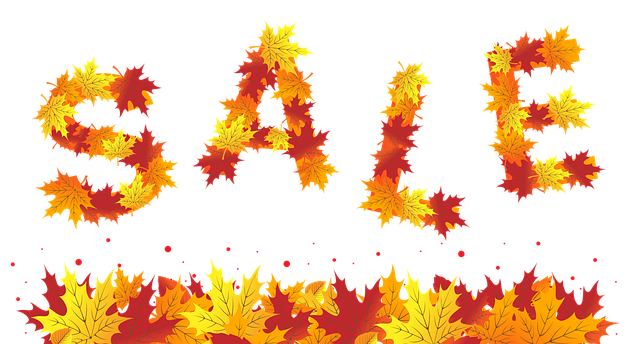Yard waste encompasses organic materials from gardening and landscaping activities, such as leaves, grass clippings, woody debris, and garden plants. Proper management through Yard Waste Removal and Recycling programs is crucial for environmental health, as these initiatives convert organic matter into compost, benefiting soil health and supporting sustainable agriculture while reducing the carbon footprint by diverting waste from landfills. These services are particularly advantageous for homeowners with large properties or during high-volume seasons like autumn, helping to manage yard waste effectively through strategic collection methods, leaf blowing, and efficient disposal options that minimize pollution and landfill use. Homeowners can also employ leaf mulching using mechanical shredders to create compost, enriching garden soil and promoting an organic approach to maintaining healthier yards and gardens while contributing to ecological sustainability. By composting yard waste, we reduce landfill use, control erosion, suppress weeds, conserve moisture, and diminish the need for synthetic fertilizers, all of which emphasize the importance of Yard Waste Removal and Recycling in maintaining a balanced ecosystem and cleaner communities.
autumn’s bounty presents a seasonal challenge for homeowners: managing yard waste. As leaves accumulate, the need for efficient leaf collection and mulching becomes clear. This article delves into the significance of proper yard waste management, offering insights on understanding yard waste types, implementing effective collection strategies, and highlighting the benefits of mulching through professional services. Yard Waste Removal and Recycling play a pivotal role in maintaining a healthy landscape and ensuring environmental sustainability. Join us as we explore these practices to keep your yard looking its best while contributing positively to the local ecosystem.
- Understanding Yard Waste: Types and Significance
- Effective Leaf Collection Strategies for Homeowners
- The Benefits of Mulching Yard Waste and Professional Services Available
Understanding Yard Waste: Types and Significance

Yard waste encompasses a variety of organic materials generated from landscaping activities, including leaves, grass clippings, twigs, branches, and garden plants. Effective yard waste removal and recycling are crucial for maintaining environmental health, as these materials can decompose and release methane, a potent greenhouse gas, into the atmosphere if not managed properly. Yard waste removal and recycling programs offer residents a means to manage this organic material responsibly, often through composting facilities or specialized yard waste collection services. These initiatives not only reduce the environmental impact of yard maintenance but also contribute to the creation of nutrient-rich compost, which can be used to enhance soil health in gardens and agricultural lands. By participating in such programs, communities can minimize their carbon footprint while fostering sustainable land management practices. Homeowners with large properties or those who generate significant amounts of yard waste during certain seasons benefit from these services, as they alleviate the burden of managing this material themselves and ensure that it is processed into beneficial compost rather than ending up in landfills. Yard Waste Removal and Recycling are thus integral components of sustainable waste management systems, promoting both environmental stewardship and resource recovery.
Effective Leaf Collection Strategies for Homeowners

Homeowners can efficiently manage yard waste, particularly during the autumn season when leaves fall, by employing effective leaf collection strategies. A key approach is regular raking or leaf blowing to gather leaves promptly, which prevents them from smothering grass and forming a mat that can impede water, light, and air flow. Once collected, homeowners have several options for disposal. Yard waste removal services are widely available and often include the collection of leaves, making it convenient to clear large volumes of fallen foliage without the need for extensive manual labor. These services ensure that leaves are disposed of responsibly, reducing the likelihood of yard waste contributing to pollution or occupying valuable space in landfills.
Another eco-friendly alternative is leaf mulching, a process that transforms leaves into nutrient-rich material for composting. Mulching leaves through mechanical shredders not only reduces the volume of yard waste but also generates beneficial compost that can be used to enrich garden soil. This practice of recycling yard waste through mulching not only saves space but also promotes a sustainable cycle of organic matter within the home landscape. By incorporating these strategies, homeowners can maintain a healthy and aesthetically pleasing yard while effectively managing the natural seasonal changes that occur with the fall of leaves. Yard waste removal and recycling initiatives play a crucial role in maintaining ecological balance and reducing the environmental impact of yard maintenance.
The Benefits of Mulching Yard Waste and Professional Services Available

Yard waste removal and recycling play a pivotal role in maintaining the health of lawns and gardens, as well as protecting the environment. Mulching yard waste is a beneficial practice that converts organic materials like leaves, grass clippings, and garden trimmings into nutrient-rich material, which can then be reintroduced back into the soil. This process not only saves space in landfills but also enhances soil fertility, improves soil structure, and aids in soil erosion control. Additionally, mulching helps to suppress weeds, regulate soil temperature, and conserve moisture. The decomposed organic matter enriches the soil with essential nutrients, promoting plant growth and reducing the need for chemical fertilizers.
Homeowners and property managers can take advantage of professional services specialized in yard waste removal and recycling. These services offer convenient solutions for dealing with seasonal leaf fall and excess garden debris. Professional mulching and composting services ensure that yard waste is processed effectively, minimizing the environmental impact and turning waste into a valuable resource. By utilizing these services, property owners can maintain their outdoor spaces efficiently while contributing to sustainable practices. The expertise of these professionals guarantees optimal decomposition, yielding high-quality compost that can be used to nourish the soil, further underlining the importance of yard waste removal and recycling in the ecosystem’s health and the community’s cleanliness.
Effective yard waste management, particularly during the fall season, is pivotal for maintaining healthy landscapes. Homeowners can optimize their leaf collection efforts by employing strategic approaches outlined in this article. Beyond mere clean-up, mulching yard waste not only aids in soil health and nutrient recycling but also presents accessible professional services to assist with this process. By understanding the types and significance of yard waste and utilizing these strategies, you can contribute to sustainable Yard Waste Removal and Recycling practices, ensuring your yard remains vibrant while benefiting the environment.
